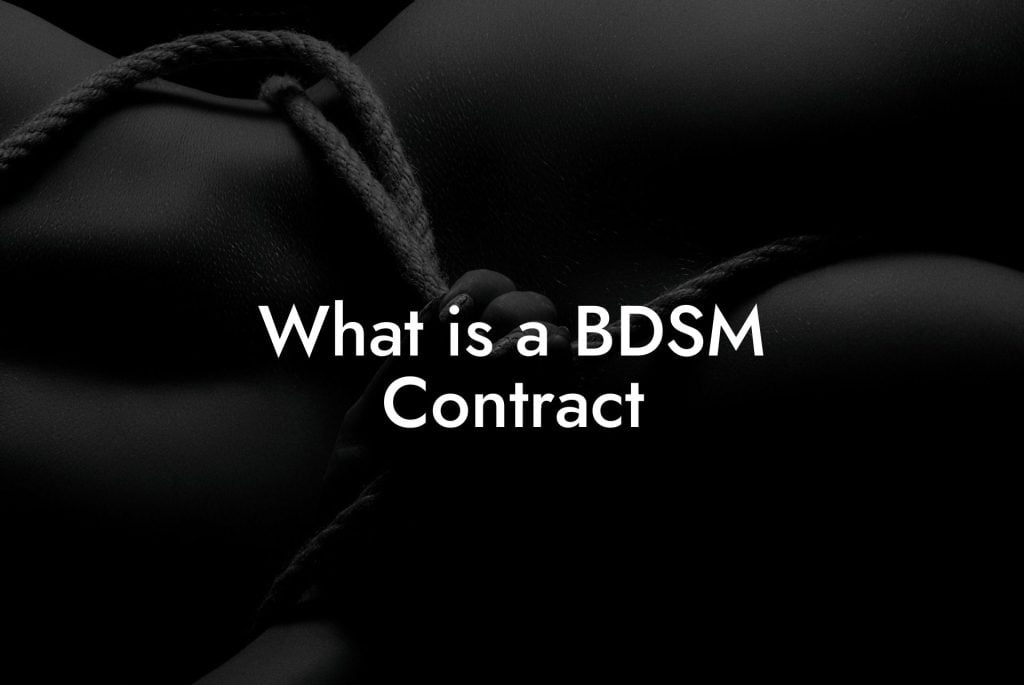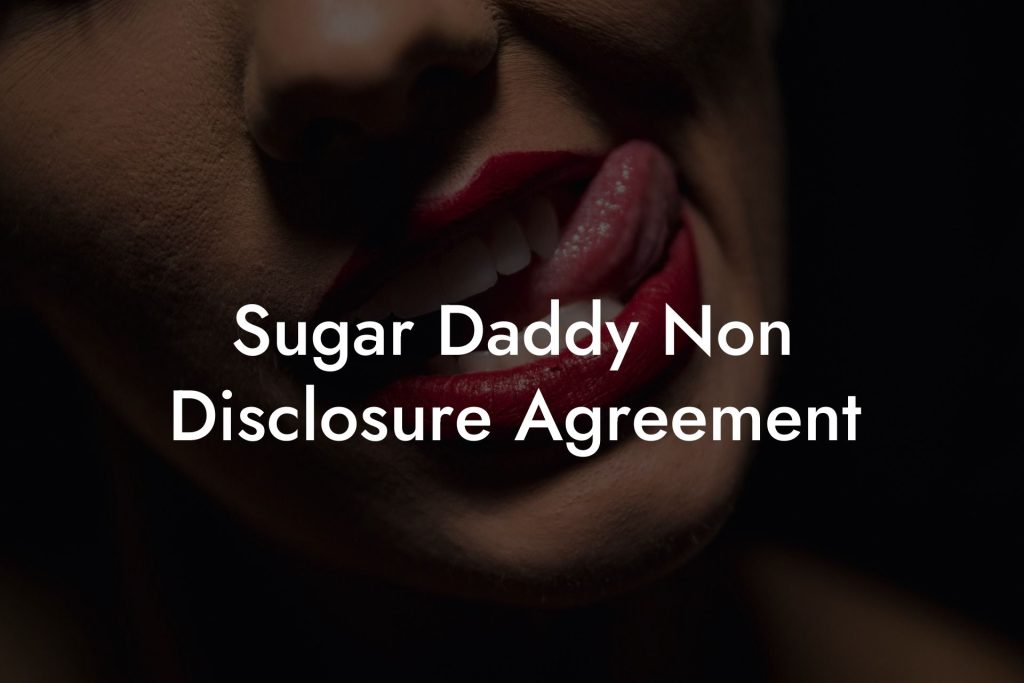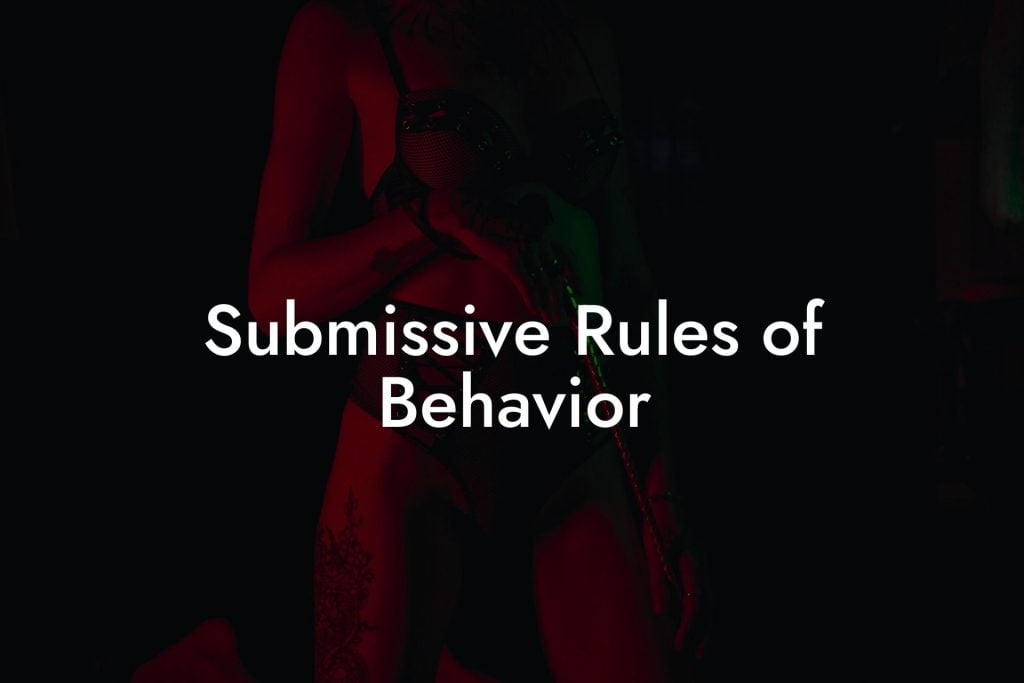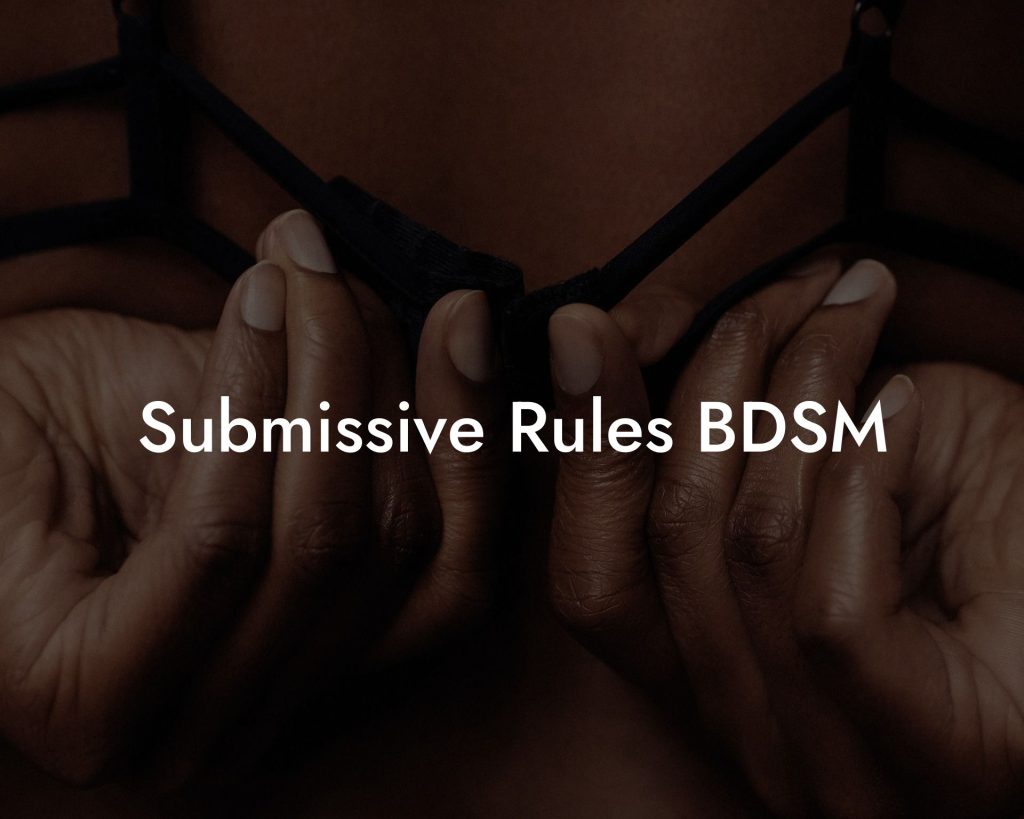Sub-Dom contracts play a pivotal role in the BDSM world, providing a framework for power dynamics, boundaries, and consent within dominant and submissive relationships. Whether you're new to the kink community or an experienced player, understanding and implementing these contracts can enhance your exploration of BDSM. In this guide, we'll delve into the fascinating world of sub-dom contracts, exploring their purpose, essential elements, and the importance of communication and negotiation. Get ready to embrace the world of power exchange as we navigate the depths of domination and submission.
In any BDSM relationship, consent is the cornerstone of trust and respect. It’s more than just saying “yes” or “no”—it’s about openly communicating your desires, limits, and expectations. But trust doesn’t end with a conversation—it’s built through ongoing, clear agreements. That’s where our Dominant & Submissive BDSM Contract Pack comes in. Find out more →
Defining Sub-Dom Contracts
Sub-dom contracts are personalized agreements between a submissive (sub) and a dominant (dom) that outline the specific terms, rules, and expectations within their BDSM relationship. These contracts serve as communication tools, ensuring both parties have a clear understanding of their roles, boundaries, and consent. They provide a vital structure, fostering a safe and consensual environment for power exchange dynamics.
Elements of a Sub-Dom Contract
- Negotiation and Communication: Open and honest communication is the foundation for successful sub-dom contracts. Partners must openly discuss their desires, limits, and boundaries to establish trust and promote consent.
- Dynamics and Roles: Clearly define the roles of the sub and dom, outlining their responsibilities, expectations, and power dynamics within the relationship.
- Hard and Soft Limits: Outlining limits helps establish boundaries and ensures the sub's physical, emotional, and psychological well-being. Both parties should be aware of hard limits (non-negotiable boundaries) and soft limits (boundaries open for negotiation).
Looking for the best BDSM & Kink OnlyFans content creators? Here is a list of of our favourites that you will love:
-
- Best BDSM & Fetish OnlyFans - Molly✨ >> Link
- Best BBW & Huge Ass OnlyFans - Naughty Hanna Zimmer 💜🎀 >> Link
- Best Sexy Gaming Nerd OnlyFans - 🎮 Gracy EstuSWEET 🎮 >> Link
- Best Fetish & Kink Messaging OnlyFans - 💫Lola La Fleur 💫 >> Link
- Best Girl Next Door OnlyFans - ☀️Lily ⛅ >> Link
- Best Tiny European OnlyFans - 💝 Ami Allison 💝 >> Link
- Best Cosplay OnlyFans - 🐱 Little Kitty Kate 👉👌 >> Link
- Best Little OnlyFans - 🧸 Katya 🙇♀️ Sun >> Link
- Best Sub OnlyFans - 🍌Hanna Banana🍌 >> Link
- Best Teen & Huge Tits OnlyFans - ❣️Anny❣️19 y.o. BUSTY student girl >> Link
- Best Tiny Tits OnlyFans - ⍣⭐️ Sofia Parker ⭐️⍣ >> Link
- Best Sub & Huge Boobs OnlyFans - Nika Huge Boobs >> Link
- Best Kink OnlyFans - Sofia💖 >> Link
- Best Fetish & Girl Next Door OnlyFans - Hillary is Wet 💦 >> Link
- Best Dirty Latina OnlyFans - Paula Flores 😈 >> Link
Not quite what you are looking for? View the full list →
- Safewords and Aftercare: Include provisions for safewords, a designated word or signal to indicate when a boundary has been crossed. Aftercare, the emotional and physical support following BDSM activities, should also be discussed and agreed upon.
Negotiation and Implementation
- Detailed Discussion: Extensive negotiation is crucial in creating a sub-dom contract that accommodates both partners' needs. Discuss preferences, expectations, and limits in depth to ensure mutual understanding.
- Clear Language: Use precise and unambiguous language in the contract. Avoid vague terms that may lead to misunderstandings or misinterpretations.
- Flexibility and Adjustment: A sub-dom contract should be viewed as a dynamic document that can be revised and adjusted as the relationship evolves. Regular check-ins and ongoing communication are essential for adapting to changing desires and needs.
Frequently Asked Questions
What is a BDSM contract?
A BDSM contract is a written document that outlines the expectations, boundaries, limits, and rules agreed upon by all parties involved in a BDSM relationship. This contract aims to ensure clear communication and consent for the activities that will be participated in and is a tool for establishing trust and safety.
Is a BDSM contract legally binding?
No, a BDSM contract is not legally binding. It is a symbolic agreement between consenting adults to outline the dynamic of their relationship and the activities they will engage in. It's meant more for clarifying the terms and conditions of their interactions rather than a legal obligation.
Why are power dynamics important in BDSM?
Power dynamics are central to BDSM activities. They define the roles of dominance and submission that the partners consent to take on. Understanding and negotiating these roles is crucial for a fulfilling and safe BDSM experience, as it creates a framework in which both partners can explore their desires and limits.
How does consent work in BDSM?
Consent in BDSM is an ongoing process that involves open communication and negotiation before any activities take place. All parties must agree enthusiastically and voluntarily, and consent can be withdrawn at any time. Safe words are commonly used to communicate boundaries during a scene.
What are safe words?
Safe words are prearranged signals used in BDSM to communicate that a participant needs to slow down, pause, or stop the activity. They are essential for maintaining safety and are a crucial part of the consent process.
Can you revoke consent during a BDSM scene?
Yes, consent can and should be revoked if any participant feels uncomfortable, experiences pain beyond their limit, or wishes to stop for any reason. The use of safe words or signals facilitates this process.
How do you negotiate a BDSM scene?
Negotiating a BDSM scene involves discussing and agreeing on all aspects of the scene before it takes place. This includes roles, activities, limits, safe words, and aftercare needs. Negotiation ensures that all parties have a mutual understanding of what to expect and are fully on board.
What should be included in a BDSM contract?
A BDSM contract should include the names of the participants, their roles, a detailed list of activities that are agreed upon, limits and boundaries, the duration of the contract, safe words, and any other relevant details that ensure clear and consensual play.
Is a BDSM contract necessary?
A BDSM contract is not necessary for all BDSM relationships; however, it can be very helpful, especially for those new to the lifestyle or starting a new relationship, as it promotes communication and sets clear expectations. Established partners may choose verbal agreements or implicit understanding based on trust.
What is aftercare and why is it important?
Aftercare refers to the time spent after a BDSM scene in which partners provide each other with emotional and physical care and support. It is essential as it helps to ease the transition out of the role-playing dynamic and can prevent feelings of neglect or abandonment, fostering a stronger bond between the participants.
Are BDSM activities legal?
The legality of BDSM activities varies by jurisdiction, but generally, if all activities are consensual, private, and involve adults, they are legally permissible. However, non-consensual acts or those causing bodily harm may be illegal. It's important to stay informed about local laws and regulations.
How do you build trust in a BDSM relationship?
Trust in a BDSM relationship is built over time through consistent communication, honesty, respect, and upholding agreed upon boundaries and rules. It develops as partners consistently demonstrate their commitment to each other's well-being and consent.
How do you discuss your limits?
Limits should be discussed openly and without judgment, ideally during the negotiation phase. Each party should express their personal boundaries clearly and listen to their partner's limits with respect. Limits can be revisited and revised as the relationship evolves.
What are 'hard limits'?
'Hard limits' refer to non-negotiable boundaries that an individual is not willing to explore or participate in under any circumstances. They must always be respected in a BDSM relationship.
What do you do if a limit is accidentally crossed?
If a limit is accidentally crossed, stop the activity immediately, and provide appropriate aftercare. Openly discuss what happened in a non-judgmental and supportive environment to understand how to prevent similar occurrences in the future and maintain trust.
Can the dominant be the one to use the safe word?
Yes, anyone involved in a BDSM activity can use the safe word, including the dominant. BDSM relies on the comfort and consent of all parties, and dominants also have their own limits and needs to communicate.
How does one get started with BDSM?
Getting started with BDSM often involves self-education through reading, workshops, and online forums. Locating and engaging with a responsible BDSM community for support and mentorship can also be beneficial, along with clear communication and negotiation with potential partners regarding desires and limits.
What is 'scene negotiation'?
'Scene negotiation' is the process of discussing and agreeing upon the specific details surrounding a BDSM activity or 'scene.' This involves determining roles, activities, limits, safe words, and aftercare requirements, among other things, to ensure a positive and consensual experience for all involved.
What if I change my mind after signing a BDSM contract?
Since a BDSM contract is not legally binding, you have the right to renegotiate or withdraw from the agreement if you change your mind. It's important to communicate any changes in comfort levels or interests to your partner as soon as possible.
How do you deal with jealousy or insecurity in a BDSM relationship?
Jealousy and insecurity can be managed through open, honest conversation about feelings, reinforcing boundaries, and ensuring a commitment to transparency and reassurance. Other methods include seeking guidance from experienced community members, reading literature on the subject, or potentially exploring professional counseling.
Are there any resources for beginners in BDSM?
Yes, there are numerous resources for beginners interested in BDSM, including books, online communities, educational workshops, and forums. Many local BDSM communities offer 'munches,' which are social meet-and-greets that can provide a safe space for learning and meeting like-minded individuals.
As you embark on your journey into the world of sub-dom contracts, remember the importance of communication, negotiation, and consent. Explore additional resources and guides on Filthy Adult to deepen your understanding of BDSM dynamics. Don't forget to check out our Ultimate BDSM Contract Pack, filled with templates and guidance to assist you in creating your personalized sub-dom contract. Dive into our fetish shop and explore a range of erotic art prints and products to enhance your BDSM experiences. Share this article with fellow adventurers and join us in embracing the daring realms of power exchange and fulfillment.













